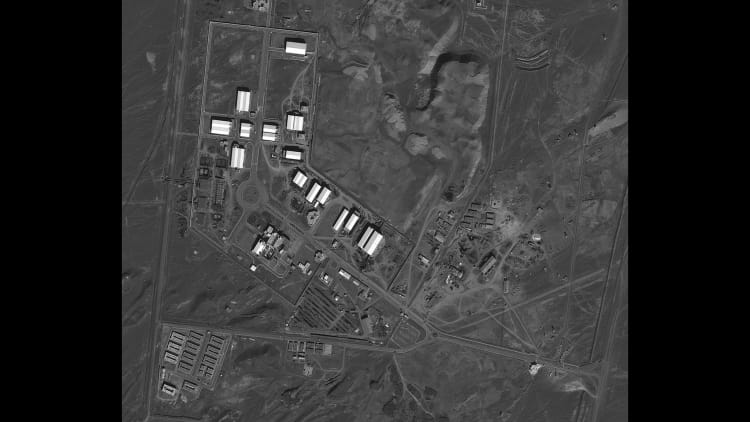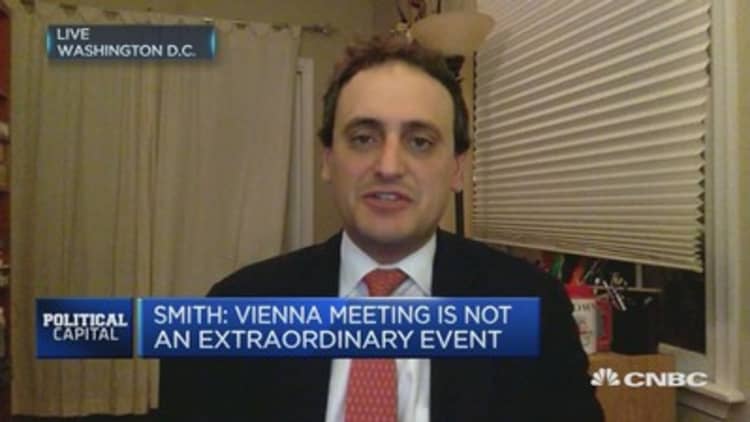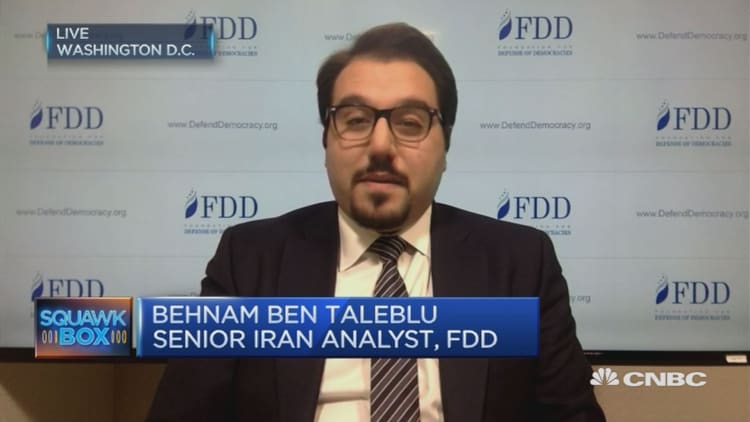
The Iran nuclear deal faces a minefield of grievances that could scuttle the accord as President-elect Donald Trump takes over U.S. policy and Iranian factions wage a bitter fight over who will eventually succeed the nation's supreme leader.
The landmark deal remains vulnerable because it created a temporary solution to Iran's nuclear program, but did not address critical disputes between Washington and Tehran. Whether or not the nuclear pact buckles under the weight of those unresolved issues now depends on how each side responds to one another's almost inevitable provocations.
On the campaign trail, Trump said he would renegotiate the agreement, the Joint Comprehensive Plan of Action, which was reached in 2015 between Iran and six world powers, including the United States, that put limits on Tehran's nuclear program and lifted international sanctions on the country.
I have a very difficult time imagining the Trump administration encouraging European banks to go into Iran, and that's going to make the Iranians very angry.Cliff KupchanEurasia Group chairman
Some analysts say that is unlikely because the other parties to the accord — France, Germany, the U.K., Russia and China — support the agreement. The U.S. risks sparking a crisis with its European partners if it pulls out and attempts to make it difficult for foreign companies to do business in Iran.
Still, the deal could fracture if the U.S. or Iran treads too stridently over any number of fault lines.
"I think there will be sparks from both sides, but both sides have significant reasons to de-escalate, as well," said Cliff Kupchan, chairman of political risk consultancy Eurasia Group.
U.S. sanctions
Iran still faces unilateral U.S. sanctions over its ballistic missile testing, human rights record and support for U.S.-designated terrorist groups. The negotiations over Iran's nuclear program were never meant to address these issues or remove the related sanctions, but Tehran has still accused the United States of violating the nuclear deal by extending the sanctions last year.
Congressional Republicans have already prepared new sanctions legislation, and analysts say it's very likely Trump will cooperate with lawmakers to pass new measures.
Iran has angered Washington by conducting ballistic missile tests since signing the nuclear deal. It has also intervened in conflicts in Syria and Yemen to support forces the U.S. opposes.

"You could easily see a scenario whereby in the next few months Iran does something provocative in the Middle East, Congress and the new Trump administration respond with new sanctions and Iran says, 'Well, you've just abrogated your end of the deal, so therefore we're going to recommence our nuclear activities,'" Karim Sadjadpour, senior fellow at the Carnegie Endowment for International Peace, said last month on the Carnegie Podcast.
To be sure, Iranian President Hassan Rouhani and Supreme Leader Ayatollah Ali Khamenei both threatened retaliation if the United States extended the sanctions, but they have not delivered.
Iran's economy
Iranians have also been frustrated by the pace of economic improvement after the lifting of sanctions last year, and officials have frequently blamed the United States.
U.S. sanctions have a chilling effect on investment in Iran because the United States has tremendous influence over the international banking system, and has fined foreign financial institutions for dealing with Iranian businesses in the past.
Kupchan said it's surprising just how hesitant international banks have been to provide financing in Iran, despite efforts by the Obama administration to assure them it is safe to do so. The Iranian leadership's frustration may only grow under Trump.
"I have a very difficult time imagining the Trump administration encouraging European banks to go into Iran, and that's going to make the Iranians very angry," he said.

Still, analysts say many leaders in Iran prefer Trump to Hillary Clinton. They see him as a deal-maker who is uninterested in nation building or regime change. They also see opportunity in his suggestion that the United States could partner with Russia — Iran's ally in the Syrian civil war — to fight Islamic State terrorists.
"What excites them is what Trump will do in a place like Syria, what Trump might be willing to do in the so-called campaign against terror in the Middle East," said Alex Vatanka, senior fellow at the Middle East Institute.
Conflicts in the Persian Gulf
That does not eliminate the possibility of military clashes between Iran and the United States.
This week, a U.S. Navy destroyer sailing toward the Persian Gulf fired warning shots at vessels manned by Iran's Revolutionary Guard Corps when they approached at high speed, according to the Pentagon.
The incident followed a slowdown in such confrontations. But Vatanka says this could become more common in the coming years as hard-liners, who include the Revolutionary Guards, jockey for power with moderates. That power struggle is fueled by both sides' efforts to put forward a successor to Iran's 77-year-old Supreme Leader Khamenei when the time comes to replace him.
Hard-liners see an opening to consolidate power after the death of Ayatollah Ali Akbar Hashemi Rafsanjani, former Iranian president and the moderates' most influential ally, Vatanka said. Those efforts could exacerbate tensions with the United States.
"They've proven again and again they're willing to provoke the U.S. to score points domestically," he said. "Up to this point, they've gotten away with it in terms of not paying the price for it."
Nor is the United States likely to back down. Anlaysts say secretary of Defense nominee James Mattis is an advocate of a muscular presence in the Persian Gulf, which separates Iran and key U.S. allies like Saudi Arabia.
Vatanka, who has attended security briefings with Mattis, said the former general believes the United States should not create a leadership vacuum in the Gulf and leave U.S. allies to fend for themselves. But he also says Mattis is deeply knowledgeable about Iran and very careful about committing American military personnel to war.
"He might take delight in the fact that they label him 'Mad Dog Mattis' but there's nothing mad about Gen. Mattis," he said.


